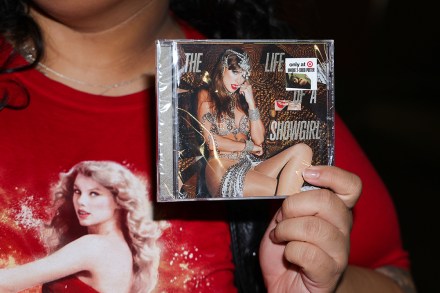Everything and the girl: a lit-crit dissection of the Swifty world
Stephanie Burt is a Harvard professor of English, a poet and a literary critic who recently created and taught a course on ‘Taylor Swift and Her World’. This not only attracted an unusually high degree of student engagement but also international media attention, with, one suspects, greater measurable benefits for Burt and Harvard than for Swift. Now Burt has produced Taylor’s Version: The Poetic and Musical Genius of Taylor Swift. The thesis is that Swift is a hugely successful artist because her songs are both ‘relatable’ and ‘aspirational’ The title suggests the sort of literary and musicological analysis that has been devoted to singers such as Morrissey (most brilliantly by



